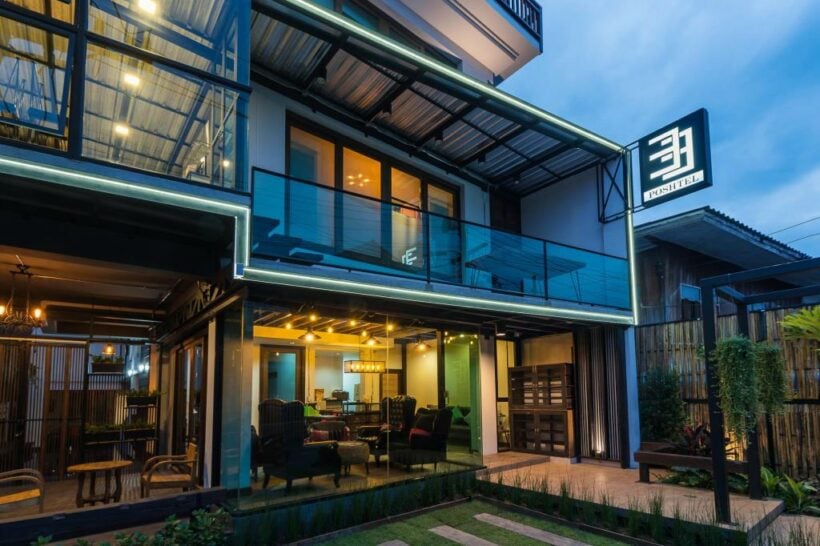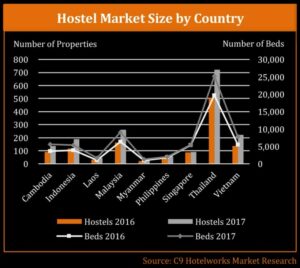‘Poshtels’ pushing into Southeast Asia’s budget and economy hotel space

PHOTO: Agoda.com
by Bill Banett, c9hotelworks.com
A new market report question’s if cookie-cutter hotel groups will again fall asleep at the wheel as they did with online travel agents and Airbnb
Call them ‘poshtels’, hostels or hybrid hotels, but one of the most exciting travel spaces across Asia is the emergence of socially-focused accommodation. Not only have millennials embraced the shift, but a rising number of older explorers are jumping the shark and abandoning traditional properties.
Taking a deep dive into the current set of economics across Southeast Asia is hospitality consulting group C9 Hotelworks newly released Hostel Market Update 2018. With 1,766 international standard hostels in the region with over 63,000 beds, year-on-year growth last year shot up by an impressive 32%.

What is a notable in this changing landscape is that with mounting demand in the sector, there are no signs of deceleration, as investment is being embraced by an increasing number of hospitality groups and institutional investors. Within Southeast Asia, the tourism tigers of Thailand, Malaysia, Indonesia and Vietnam are key players.
Analysing the state of play, C9’s MD Bill Barnett says, “in days past hostels typically sat in the sub-budget accommodation tier but with the recent evolution of properties now becoming hybrid hotels with a mix of private rooms, it’s an entirely new ballgame.
“Our metric for hostels is average-daily-rate-per-bed (ADRB) versus the traditional hotel focus on average-daily-rate (ADR) per room. What is clear in our research is that in a growing number of cases the investment returns of these hybrid properties are superior to budget hotels in the same market. This is of particular interest to developers who are motivated by real estate return efficiencies.”

While there is movement afoot for consolidation and mainstream players either acquiring or developing their own brands, C9’s research shows that 87% of current supply remains independent. This is amplified by the reliance on external online travel agencies (OTA’s) to drive bookings, with the leading player being U.K.-based Hostelworld.
Reflecting on changes in Southeast Asia’s hostel scene over the past twelve months, C9 Hotelworks’ Bill Barnett says “growth in resort destinations is far exceeding urban locations. Rising real estate values are clearly at play here but on a broader basis many investors view the strong recurring cash flow position, with lower investment than hotels as temping.
“What will be interesting is how effective budget and economy hotel chains adapt to the competition, and will they eventually have a moment of clarity on how hybrids reflect a marked departure in consumer travel patterns. Based on hotel groups stunningly slow reaction to OTA’s and Airbnb, I’d say hybrids look to be one of the more interesting accommodation tiers in the next few years.”

Read Bill’s full report and stats HERE.
Latest Thailand News
Follow The Thaiger on Google News:


























